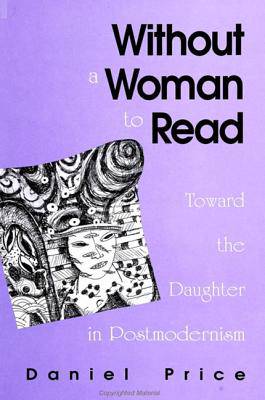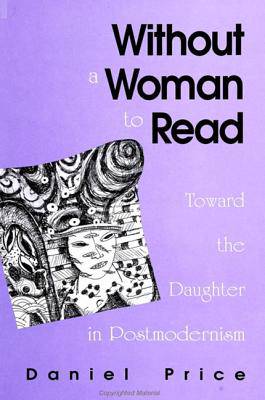
- Afhalen na 1 uur in een winkel met voorraad
- Gratis thuislevering in België vanaf € 30
- Ruim aanbod met 7 miljoen producten
- Afhalen na 1 uur in een winkel met voorraad
- Gratis thuislevering in België vanaf € 30
- Ruim aanbod met 7 miljoen producten
Zoeken
€ 145,45
+ 290 punten
Uitvoering
Omschrijving
Without a Woman to Read enacts a new metaphorical thinking of political and social space around the questions of silence and voice, reading and writing, maternity and paternity, faithless daughters and transcendent sons. Price's interrogations of the tradition find a new space between primary and secondary sources, orchestrating the conjunction and disjunction of political, social, and aesthetic themes within postmodernism. In that sense, the book belongs to several discourses--postmodern philosophy, political theory, feminism, psychoanalysis, and literary theory--at the same time that it transcends any particular discourse. An essay in the reconfigurative and transformative possibilities of metaphor, the book not only enacts a deconstruction, and possible reconstruction, of the metaphorical space of woman but also turns in toward the political questions of creating a world that we could live in through responding to, and working toward, its constantly transforming metaphors. At the heart of the project lies a reevaluation of Levinas's ethical ontology as a response to the traditional metaphysics of structured exchange--of the giving and withdrawing of God in Christ, or of linguistic signs in the place of real presence--through a reconfiguration of the metaphorical play of sisters, mothers, and daughters.
Specificaties
Betrokkenen
- Auteur(s):
- Uitgeverij:
Inhoud
- Aantal bladzijden:
- 372
- Taal:
- Engels
- Reeks:
Eigenschappen
- Productcode (EAN):
- 9780791434598
- Verschijningsdatum:
- 28/08/1997
- Uitvoering:
- Hardcover
- Formaat:
- Genaaid
- Gewicht:
- 689 g

Alleen bij Standaard Boekhandel
+ 290 punten op je klantenkaart van Standaard Boekhandel
Beoordelingen
We publiceren alleen reviews die voldoen aan de voorwaarden voor reviews. Bekijk onze voorwaarden voor reviews.











